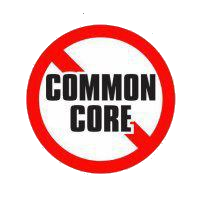NOTHING supersedes parental rights. They are affirmed in the U.S. Constitution 14th Amendment substantive due process grounds: (i.e., my right to nurture, raise, and direct the education of my child, my right and my child’s right to personal liberty, my right to protect my child from harm and for my child to be free from harm, and my right and my child’s right against unreasonable governmental intrusion);
Ninth Amendment recognizes that there are fundamental personal rights that are protected from abridgment by the government even though not specifically mentioned in the Constitution.
Federal statutes also come into play.
No Child Left Behind expressly provides: “Parents have the primary responsibility for the education of their children, and States . . . have the primary responsibility for the supporting that parental role.” 20 U.S.C. § 3401.
Similarly, the federal government has declared that I must be afforded “substantial and meaningful opportunities to participate in the education of [my child].” 20 USC § 6301 (12).
Supreme Court Recognition History
Indeed, my right to refuse to allow the state to compel my child to submit to a standardized test(or assessment) has Constitutional dimensions that have been recognized by the SupremeCourt of the United States for nearly 100 years.
My constitutional right to guide my child’s education and to protect my child from harm and exploitation at the hands of government is one of the oldest fundamental liberty interests recognized by that Court.
The Court has repeatedly held that because I have the natural inclination to further the best interests of my child, it is I who is the best protector of my child and, therefore, I have the natural right and duty to care for my child and protect her against unreasonable, arbitrary, and capricious governmental action. It is I — the parent, not the school district — who is entrusted with this constitutionally-protected, fundamental right.
The Court is emphatic that the State (the school district) has no right to interfere with or hinder my efforts to raise my child, or my efforts – my affirmative obligation — to protect my child from harm or exploitation.
See e.g., 20 U.S.C. § 6311 (based on the specific requirements outlined in No Child Left Behind, high-stakes testing violates federal law). The Court has stated: “[t]he fundamental theory of liberty upon which all governments in this Union repose excludes any general power of the State to standardize its children…The child is not the mere creature of the State; those who nurture him and direct his destiny have the right, coupled with the high duty, to recognize and prepare him for additional obligations.” Pierce v. Society of Sisters, 268 U.S. 510 (1925).
The Supreme Court has similarly held: “the custody, care and nurture of the child reside first in the parents, whose primary function and freedom include preparation for obligations the state can neither supply nor hinder.” Prince v. Commonwealth of Massachusetts, 321 U.S. 158 (1944).
Even the New York Court of Appeals recognizes this interest. The Court of Appeals stated: “It is the natural right, as well as the legal duty, of a parent to care for, control and protect his child from potential harm, whatever the source and absent a clear showing of misfeasance, abuse or neglect, courts should not interfere with that delicate responsibility.” Roe v. Doe, 29 NY2d 188 (NY 1971)
In fact, the federal government has explicitly provided protection to my child within the school environment. See 20 U.S.C. § 1232h (protecting students from examinations without written parental consent).
See 20 U.S.C. § 1232h, where parents reserve the right to examine the tests before their children are expected to take them and parents reserve the right to refuse to allow their children to take those tests if they aren’t allowed to examine them or if they feel the content is not conducive to learning or violates student privacy.
